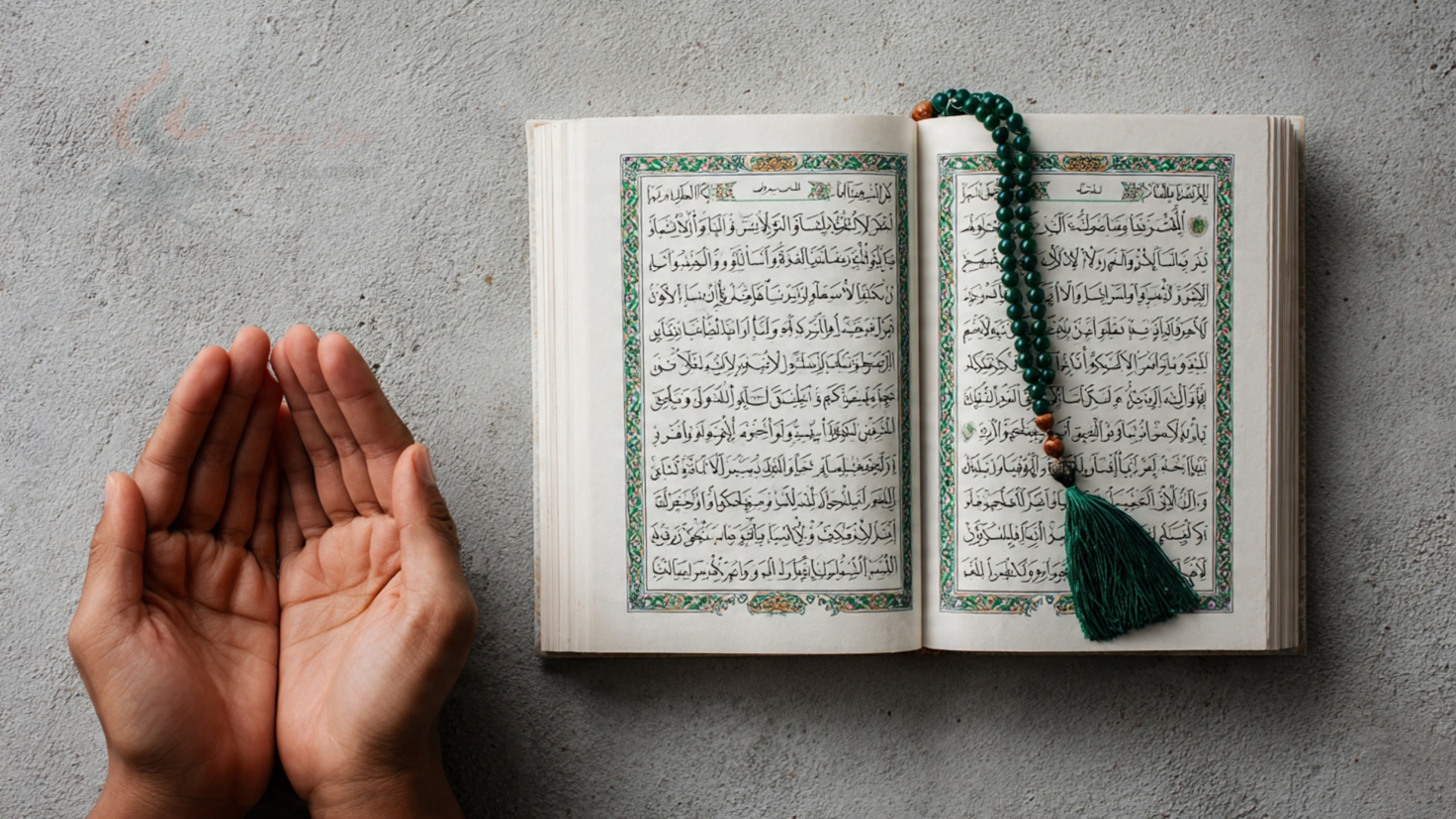Surah Lahab, also known as Surah Al-Masad, is the 111th chapter of the Quran. It contains five verses and addresses the hostility of Abu Lahab and his wife toward Prophet Muhammad (PBUH). This Surah serves as a powerful warning about the consequences of arrogance, disbelief, and harmful actions. Its message emphasizes justice, accountability, and faith.
Scholars highlight the Surah’s historical and spiritual depth. Abu Lahab’s wealth and societal influence did not protect him from divine punishment. Analysts note the linguistic precision, where terms like “tabbat” signify certain destruction. Previous studies discuss its universal moral lessons, urging individuals to reflect on their actions and avoid traits of pride or malice.
Surah Lahab captivates through its profound moral warnings. It resonates far beyond the historical conflict, offering guidance to all believers. The Surah challenges readers to examine their own choices and values. It invites them to renounce destructive traits and uphold faith, integrity, and humility for a meaningful and righteous life.
Context and Revelation of Surah Lahab
This Surah was revealed in Makkah, during the early stages of the Prophet Muhammad’s (PBUH) mission. The name “Lahab” means flame, referencing the fiery end of the Surah’s subject, Abu Lahab, a staunch enemy of Islam. Abu Lahab, whose real name was Abd al-Uzza, was the paternal uncle of the Prophet. Despite their familial ties, he harbored deep animosity toward the Prophet and his message.
The immediate revelation occurred following a critical event. The Prophet (PBUH) climbed Mount Safa to deliver his first public call to Islam and warn his kin about the Hereafter. Addressing his tribe, the Prophet asked if they would trust him if he warned them of an approaching enemy. They affirmed his credibility. However, Abu Lahab disrupted the gathering by exclaiming, “May you perish! Was this why you summoned us?” (Reported in authentic Hadith). The Quran responded to Abu Lahab’s words with the revelation of Surah Lahab.

Full Text and Translation of Surah Lahab
بِسۡمِ ٱللَّهِ ٱلرَّحۡمَٰنِ ٱلرَّحِيمِ
Bismillah hir rahman nir raheem
اللہ کے نام سے شروع جو نہایت مہربان ، رحمت والاہے ۔
In the name of Allah, the Entirely Merciful, the Especially Merciful.
تَبَّتۡ يَدَآ أَبِي لَهَبٖ وَتَبَّ
Tabbat yadaa abee Lahabinw-wa tabb
ابولہب کے دونوں ہاتھ تباہ ہوجائیں اور وہ تباہ ہوہی گیا۔
May the hands of Abu Lahab be ruined, and ruined is he.
مَآ أَغۡنَىٰ عَنۡهُ مَالُهُۥ وَمَا كَسَبَ
Maa aghnaa ‘anhu maaluhoo wa ma kasab
اس کا مال اور اس کی کمائی اس کے کچھ کام نہ آئی۔
His wealth will not avail him or that which he gained.
سَيَصۡلَىٰ نَارٗا ذَاتَ لَهَبٖ
Sa-yaslaa naaran zaata lahab
اب وہ شعلوں والی آگ میں داخل ہوگا۔
He will [enter to] burn in a Fire of [blazing] flame
وَٱمۡرَأَتُهُۥ حَمَّالَةَ ٱلۡحَطَبِ
Wamra-atuhoo hammaa latal-hatab
اور اس کی بیوی لکڑیوں کا گٹھا اٹھانے والی ہے۔
And his wife [as well] – the carrier of firewood.
فِي جِيدِهَا حَبۡلٞ مِّن مَّسَدِۭ
Fee jeedihaa hablum mim-masad
اس کے گلے میں کھجور کی چھال کی رسی ہے ۔
Around her neck is a rope of [twisted] fiber.
Historical Background of Abu Lahab
Abu Lahab, a wealthy and influential figure, was infamous for his opposition to Islam. A man with a fiery complexion, his nickname, “Father of Flame,” symbolically aligns with his fate mentioned in the Surah. He mocked and undermined the Prophet’s call to monotheism, spreading disdain among the Quraysh.
His hostility extended to direct insults and physical harm. Historical accounts report that Abu Lahab frequently threw refuse on the Prophet’s path, disruptively ridiculed him in public, and incited others to do the same. His wife, Umm Jamil, played a complicit role. Known for her arrogance and wealth, she aided her husband by spreading slander and placing thorny branches on paths frequented by the Prophet.
The Universal Message of Surah Lahab
At first glance, this Surah may appear solely as a reprimand to Abu Lahab and his wife. However, its lessons are universal. The condemnation of individual names in this Surah transcends mere personal conflict; it establishes broader warnings for anyone embodying characteristics of arrogance, disbelief, and enmity towards righteousness.
The Futility of Wealth and Worldly Power
Despite his material riches, neither his possessions nor social influence could save him from divine punishment. This verse serves as a stern reminder that true salvation lies in faith and good deeds, not worldly possessions.
The Consequences of Disobedience
Abu Lahab’s punishment symbolizes the fate awaiting those who oppose divine guidance. His fiery end in Jahannam (Hell) signifies the eternal consequences of rejecting truth and spreading discord. This message inspires believers to align their actions with divine will and to avoid arrogance.
The Role of Spouses in Mutual Corruption
The phrase “carrier of wood” metaphorically aligns with her efforts to harm the Prophet. Her twisted rope of palm fiber symbolizes self-inflicted suffering. Collectively, both Abu Lahab and his wife epitomize how partnership in wrongdoing leads to mutual ruin.
Linguistic and Literary Miracles of the Surah
The Quran is renowned for its linguistic excellence, and Surah Lahab exemplifies this. The symmetrical structure mirrors the justice of divine punishment. The recurring theme of fire in Abu Lahab’s nickname, his punishment, and his wife’s fate underscores the poetic justice revealed by Allah.
It conveys that Abu Lahab’s destruction had already been decreed by Allah.
Lessons for Modern Believers
Trust in Divine Justice:
The downfall of Abu Lahab reassures believers that divine justice will prevail. Despite facing opposition, the Prophet remained steadfast, demonstrating reliance on Allah’s support. This resilience inspires believers to remain patient in their struggles.
Caution Against Pride:
The arrogance displayed by Abu Lahab and his wife serves as a cautionary tale. Pride blinds individuals to the truth. This Surah urges humility and repentance as pathways to redemption.
Guarding Against the Spread of Harm:
Umm Jamil’s actions, described metaphorically as “carrying wood,” warn against the dangers of gossip, malice, and divisive behavior.
Contemporary Relevance of Surah Lahab
Surah Lahab remains relevant today. It addresses timeless themes of morality, justice, and accountability. Modern societies continue to witness individuals who prioritize wealth and worldly status above moral values. The Surah reminds us that material success alone cannot guarantee salvation.
This chapter inspires unity among believers by teaching the importance of supporting truth and justice, even amid adversity. The unwavering stance of the Prophet (PBUH) against Abu Lahab’s hostility exemplifies endurance and courage for current generations.
A Unique Perspective on Surah Lahab
Surah Lahab serves as an enduring warning against defying divine guidance, emphasizing that disobedience costs far more than the fleeting pleasures of this world. Who among us has not harbored pride, spread harm, or resisted correction? This Surah invites believers to eradicate such tendencies, prioritizing faith, humility, and righteousness.
Conclusion
Surah Al-Lahab is a timeless admonition revealing the fate of arrogance and opposition to divine truth. Its historical account of Abu Lahab and his wife offers profound lessons that extend beyond their narratives. It resonates as a moral compass, urging believers to reject pride and strive for integrity.
This chapter encapsulates the Quran’s rich interplay of history, morality, and divine justice. Beyond its warnings, it rekindles hope. By aligning our lives with the Quranic message, we can attain eternal safety, escaping the flames of misguidance that consumed figures like Abu Lahab.




